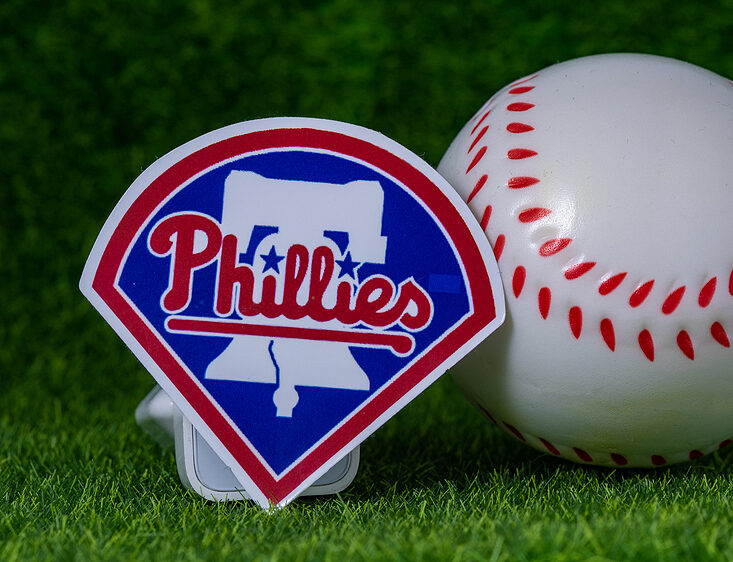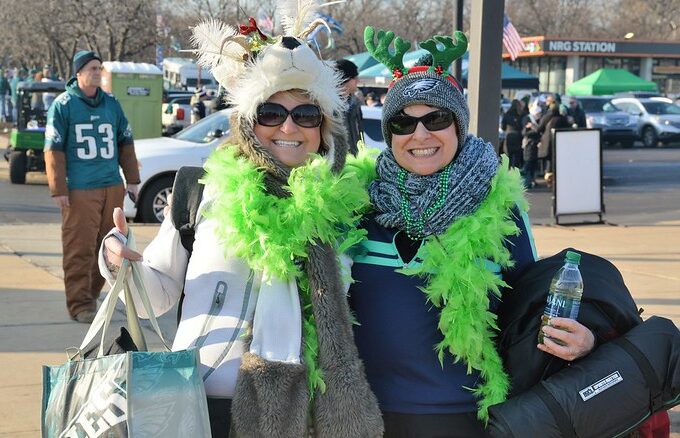GIORDANO: DEI, Title IX and MLB, Oh My!

This is a big week in Philly sports. The Eagles have the NFL Draft, the Sixers are in the playoffs, and the Phillies have come alive and are getting fans to dream of another World Series appearance. It is a great time for the fun and joy that we get from sports, and I’ve always cherished it.
However, progressive forces, which are often synonymous with destroying fun associated with holidays, language, and hundreds of other things, are on the march to change the world of sports. The brilliance of former Iowa star basketball player Caitlin Clark has stoked their claims of lack of pay equity for women athletes. Diversity, equity, and inclusion (DEI) forces are going after Major League Baseball because only six percent of the players are African-American. Finally, the Biden administration last week announced changes in Title IX that open the door for more biological men to compete in women’s sports.
The pay equity argument shows that the people making it don’t follow WNBA and NBA basketball. They argue Clark’s four-year contract will pay her just under $340,000 while the first pick in the NBA draft last year earned just over $ 10 million in his rookie year deal alone. However, the WNBA only takes in about $60 million in yearly revenue compared to the NBA’s $10 billion in yearly revenue. There are reports that Nike and others will pay Clark millions in endorsements because they recognize her value. And over time, she may significantly drive more attendance and revenue and then base salaries will go up.
The second progressive nonsensical attack on sports comes from MSNBC’s Joy Reid’s blog, which celebrated Major League Baseball’s Jackie Robinson’s Day by running a piece from Ja’han Jones stating that the scarcity of Black players in MLB should serve as a warning about attacks on DEI. He theorizes that MLB is guilty of something because the number of Black American players has dropped to just six percent of all players.
Jones scoffs at people like me who point out that maybe the NBA and NFL are more appealing to Black athletes. He makes no mention of the huge increase in MLB Latino players. Those players are not included in determining whether MLB values diversity and values any players who are going to continue to raise the level of play and competition in MLB.
It’s a good idea for MLB to try to invest in restoring playing fields in the inner city and trying to get young kids interested in baseball. How would DEI aid in this? This is just a progressive fixation from those who don’t really get sports.
Finally, on Friday, the Biden administration announced changes to Title IX that clearly have opened the door to more biological males participating in women’s sports. Riley Gaines, a former University of Florida swimmer who competed against Lia Thomas in the NCAA swim finals, tweeted that these changes mean “Sex equals gender identity.” She forecasts that men can take more athletic scholarships away from women, and biological men will have full access to female bathrooms and locker rooms.
Randi Weingarten, president of the American Federation of Teachers, saw the regulation changes differently. Fox News Channel reported Weingarten said the changes would “Remove dangerous regulations put in place in 2020 and put us back on the path of honestly discussing the modern realities of equal access to education.”
So, artificial pay equity standards, DEI meddling in the competitive aspects of sports, and forcing women to accept biological men into their events will rob sports of fun and joy. Let’s root for Caitlin Clark, MLB players from around the world, and the strides that women’s sports are making for the next generation.
Please follow DVJournal on social media: Twitter@DVJournal or Facebook.com/DelawareValleyJournal




